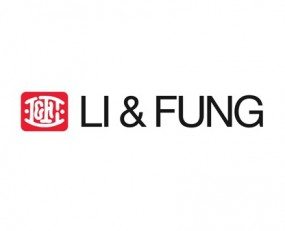
The annual results of Li & Fung confirmed that the competitive landscape in the retail sector remains highly unfavourable for a bellwether logistics company that is looking for solutions to buck the trend of falling revenues and earnings. Guidance for 2017 was hardly reassuring, to put it mildly.
Excluding divestments, the Hong Kong-based sourcing and supply chain specialist saw revenues fall by 8.3% to US$16.2bn on a like-for-like basis, while reported turnover decreased by 11.0% to US$16.8bn from US$18.8bn, mainly due to the weak trading environment in many of its client’s end markets.
As it continued to seek efficiency while trying to keep a lid on operating costs, core operating profit dropped 17.7% to US$408n on a like-for-like basis and excluding divestments. On a reported, unadjusted basis, core operating margins dropped 20 basis points to 2.5%, while adjusted operating margins fell 30 basis points.
“Turnover from the Trading Network continued to be affected by a reduction in order volume, deflation and relative currency weaknesses against the US dollar and declined by 8.7% on a like-for-like basis,” it said, adding that the much smaller logistics network business continued to grow organically in terms of earnings, as it gained market share with existing customers while securing new customer contracts and enlarging its geographical reach.
Net profit at group level came in at US$223m, while adjusted profit – which excludes the write-back of acquisitions payable and other non-cash M&A-related items – was US$261m, down 24.4% against one year earlier. As a reference, its normalised bottom line between 2014 and 2016 was US$130m higher than in the past year.
Basic earnings per share were “20.7 HK cents (equivalent to 2.67 US cents)”, down 47% against 2015. Despite thin margins, the board proposed “a final dividend of 12 HK cents per share (2015: 15 HK cents)” – its forward dividend yield at about 7% continues to signal downside risk for shareholders, despite an already sagging stock price.
Chief Executive, Spencer Fung, said that “while we delivered significant progress in key strategic areas during the past three years, the company continued to face headwinds which dampened our overall results”.
“As we enter the next three years, our entire organisation is aligned around the need to transform the business in a fast-changing environment. We have a comprehensive plan in place to create the supply chain of the future,” he added.
Its shares plunged almost 10% on the day of the announcement, which represents a similar performance to the one it recorded about a year ago, although in March 2016 its shares traded some 30% higher than currently.
Source: Transport Intelligence, April 4, 2017
Author: Alessandro Pasetti
If the content of this brief has been of interest to you, you may be interested to find out more about Ti’s Global e-commerce Logistics 2017 report. To do so click on the image below, or contact Ti Sales Consultant, Charlie Holden.